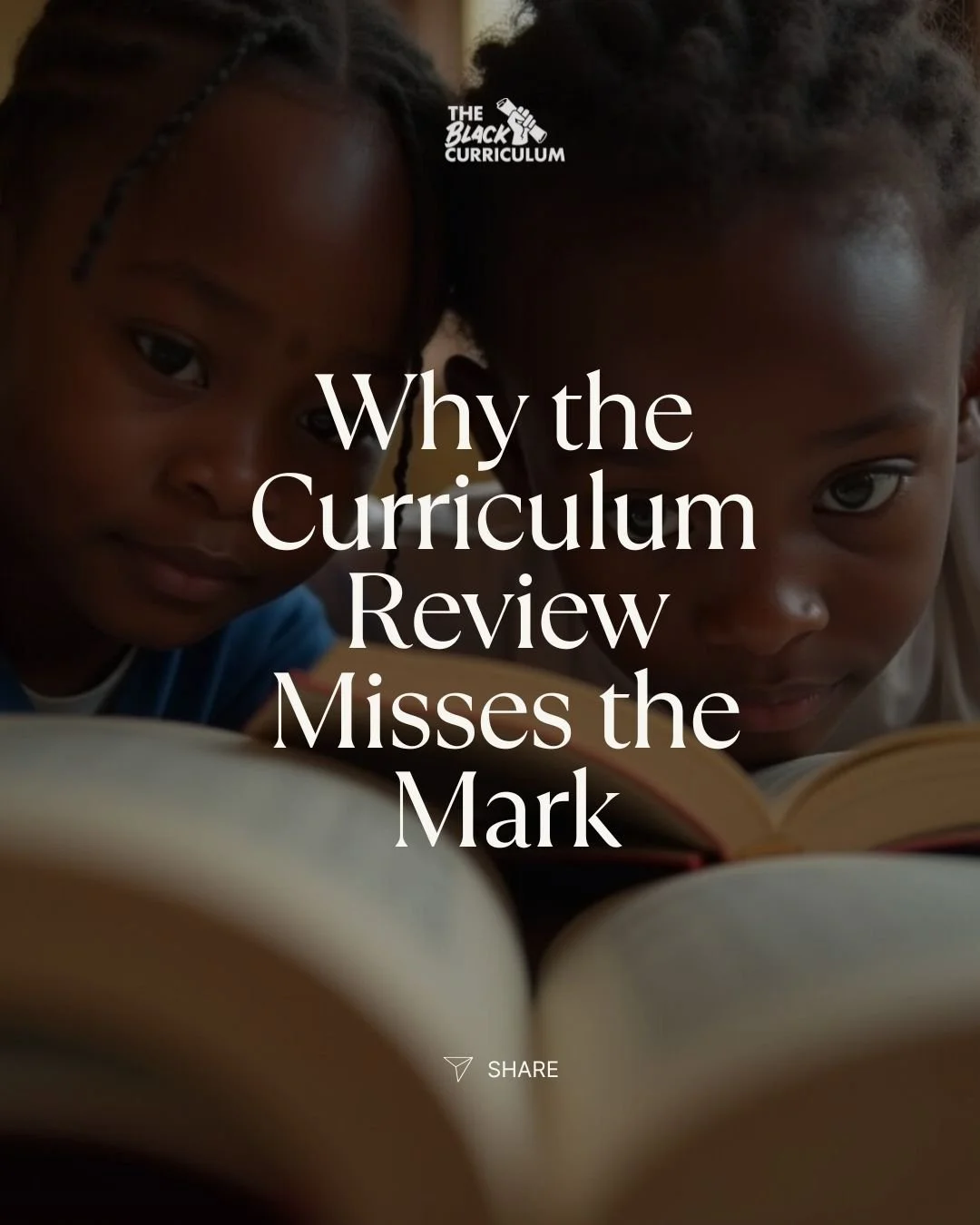The Black Curriculum Response to the Curriculum and Assessment Review (November 2025)
The Curriculum and Assessment Review had a once-in-a-generation opportunity to deliver a national curriculum that truly reflects the richness, complexity, and challenges of 21st-century Britain. Instead, it has produced a cautious, employment-heavy document that sidesteps the most pressing issues facing young people today.
At The Black Curriculum we have long argued that simply inserting diverse histories for diversity’s sake is insufficient. Young people need a curriculum that gives them deep, honest knowledge of empires, cultures, global contributions, and systems of power — knowledge that equips them to understand the present and actively shape the future. This review falls far short of that vision.
It is telling that a review contains no explicit mention of race, migration, white supremacy, or colonialism, yet repeatedly invokes vague phrases such as “reflecting the issues and diversities of our society” and “narrow frames of reference.” When young people have lived through two summers of far-right riots fuelled by online misinformation and political neglect, a curriculum review that refuses to name the causes of that unrest is not neutral. it is complicit.
Teacher autonomy is repeatedly praised, yet the review jumps straight to “high-quality resources” without acknowledging that teachers need time, protected training, and ongoing support to address contested histories confidently and safely. Local stories and case studies are rightly highlighted as powerful tools, but they are useless if staff have not been trained to handle the backlash that can follow in certain communities.
Digital literacy remains crammed into 25% of the Computing curriculum at the exact moment when social media platforms are the primary news source for an entire generation. Media literacy, algorithmic bias, and the mechanics of disinformation must become mandatory and cross-curricular.
Climate education is welcomed in principle, but teaching the crisis without teaching the historical roots of extraction and inequality is intellectual greenwashing.
The insistence on maintaining a compulsory core of Shakespeare and classic canonical texts, while allowing “space” for broader choices, simply shifts the burden onto individual teachers who lack the training depth or confidence to diversify meaningfully. Cultural capital cannot be built by preserving a literary hierarchy and calling it heritage.
SEND provision is reduced to a single contracted provider with no guaranteed on-the-ground expertise, a decision that risks replicating the very classroom inequalities the review claims to address.
This is the fifth curriculum review since 1989. The fact that each arrives with a change of government demonstrates that education is still treated as a political football rather than a long-term national asset. Continuity, evidence-led evolution, and cross-party consensus are essential if we are to break this exhausting cycle.
The Black Curriculum calls on the government to reject these timid recommendations and commit to a new, genuinely representative review , one co-designed with young people, classroom teachers, specialist organisations, and communities that have been historically sidelined. Our children deserve a curriculum that does not just include them, but empowers them to understand, challenge, and transform the world they have inherited.
We will not accept a diversity tick-box in place of real, transformative change.

